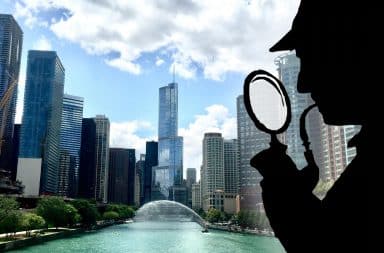The first thing I did after WebMD diagnosed me was to talk to my family and friends. Discussing details about my intestinal symptoms was embarrassing, but everyone's support and concern encouraged me to keep sharing. Pretty soon, I was steering every conversation to rice flour muffins or flatulence or both.
That's when I had what Oprah Winfrey calls an “aha” moment. Sure, gluten intolerance restricts my diet and makes eating a hassle, but it's also a conversation starter, albeit a conversation only I want to have. Most importantly, it's an opportunity: an opportunity to bore the shit out of everyone I meet.
I admire people who don't want to be defined by a disease or condition, but that's just not me. My struggle is part of my truth. I owe it to the world to share, and the world owes it to me to shut its bread hole and endure my incessant babble about chickpea pasta.
Early on, I had an evangelical zeal. When people didn't ask any follow-up questions or subtly tried to change the topic, it stung. I can't say when exactly, but at some point, I stopped caring. Now that moment when their smiles freeze and their eyes dart around frantically doesn't bother me at all. It's when I know I'm in my groove.
As every boring American knows, cell phones are making it more and more challenging to force conversations on people, so I had to get creative. People at work, particularly those whose livelihoods depend on tips, are the easiest to hold hostage.
When a waitress introduces herself, I introduce her to the world of celiac disease. (Psst—I don't actually have celiac disease, but no one takes intolerance seriously.) If she thinks that pointing to the little GF on the menu is getting her out of this conversation, she's sorely mistaken. If people can't cater to my diet, they can at least listen while I yammer on about it.
These days, there is no detail of my wellness journey so inane or tedious I won't crowbar it into a conversation. In fact, it gets easier every time.
When I look back on my life before gluten intolerance, it seems such a sad, lonely place. I was trapped by the social norms that dictate how long you can talk, to whom, and about what.
I didn't have the confidence to look in a stranger's grocery cart and say, “Shoot, I wish I could eat that.” I wouldn't have continued looking through their cart, cataloging all the things I can and cannot eat, flaunting my encyclopedic knowledge of a subject about which they showed no interest.
And before my “diagnosis,” I might have felt pressured to eat whatever was served at a party. I wouldn't have taken the initiative to drag the host over to the table, point to every dish, and ask if had gluten in it.
If we finally found something that didn't, I wouldn't have asked right before putting it in my mouth, “Was this cooked in an oven with wheat?” When the host said, maybe, I wouldn't have slumped down with a crestfallen face and said, “It's okay. I ate before I came.”
The old me would never do that. In fact, the old me would have been horrified, but not now. Now I'm free, free as a bird eating millet, which by the way, is gluten-free.


